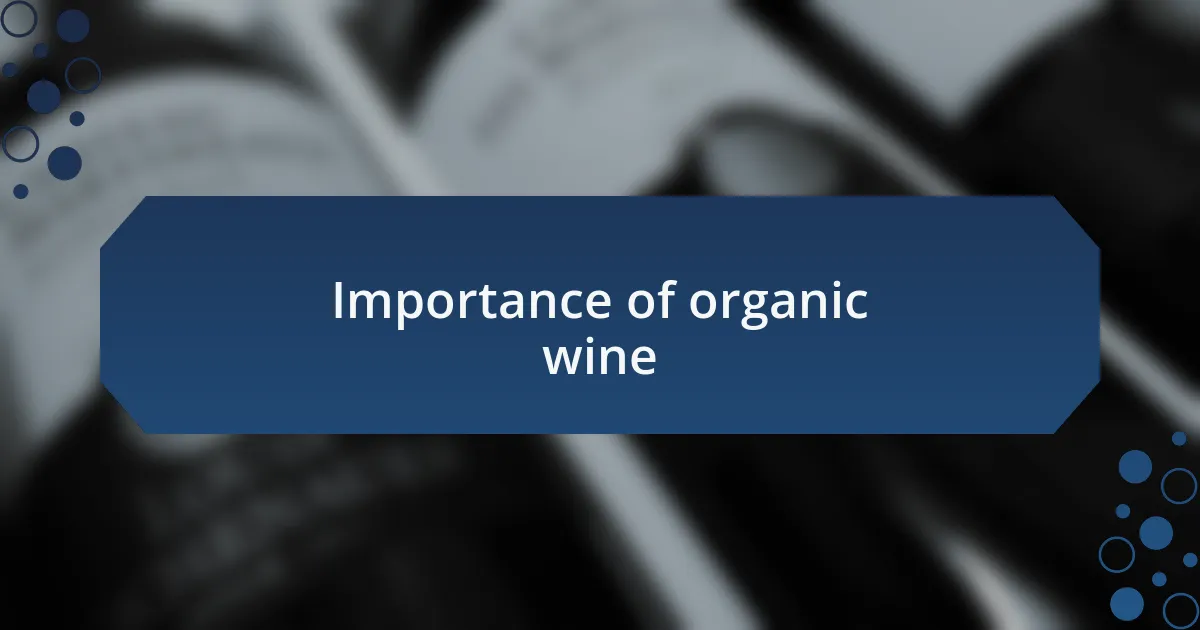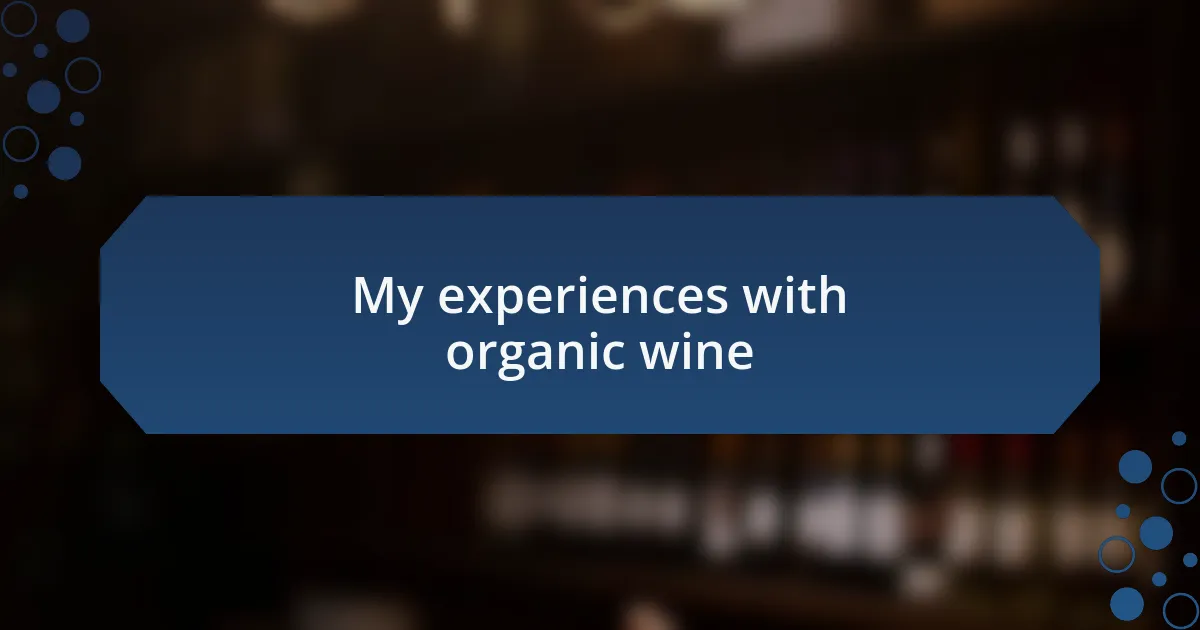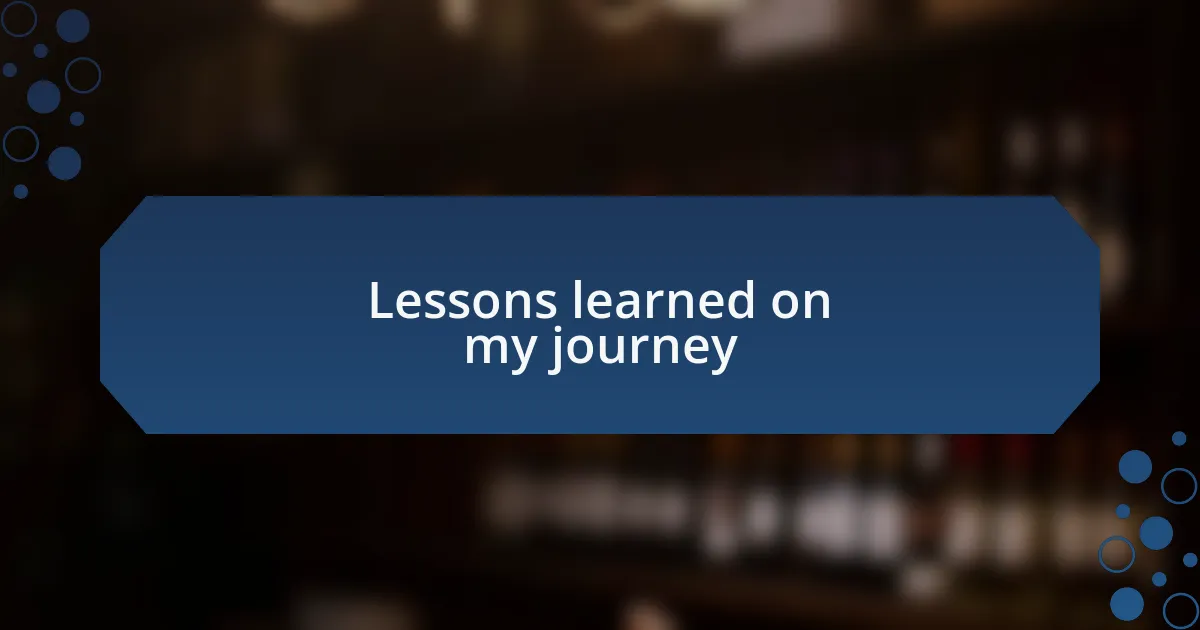Key takeaways:
- Zero waste farming emphasizes resourcefulness and creativity, transforming agricultural waste into valuable compost to enrich soil and promote sustainability.
- Organic wine production enhances biodiversity, offers richer flavors, and appeals to a growing consumer demand for healthy, sustainable products.
- Implementing sustainable practices, like soil health focus, resource efficiency, and crop rotation, leads to improved ecosystem resilience and farming success.
- Collaboration with local farmers fosters community support and resource sharing, enriching the farming experience and reducing waste.

Zero waste farming defined
Zero waste farming is a holistic approach aimed at minimizing waste in agricultural practices. It goes beyond merely recycling; it involves rethinking and redesigning farming systems to utilize every resource fully. For example, I discovered how intriguing it is to turn grape pomace, the leftover skins and seeds, into compost rather than letting it go to waste.
This practice not only enriches the soil but also closes the loop in the farming cycle. Have you ever considered how much potential is locked away in what we typically discard? By adopting zero waste principles, we can harness that potential, leading to healthier crops and a more sustainable ecosystem.
In my own experience, I’ve found that reducing waste often requires creativity. For instance, repurposing old trellis materials for new planting setups has not only saved money but also given my vineyard a unique character. This practice underscores the idea that zero waste farming is not just about sustainability, but also about innovation and transforming challenges into opportunities.

Importance of organic wine
Organic wine production holds significant importance, not just for the health of the environment, but also for our well-being. When I first ventured into organic wine practices, I was surprised by how much my taste buds responded to the purity of flavors. Wines made from organically grown grapes often offer nuanced characteristics that conventional wines may lack, largely because they are free from synthetic pesticides and fertilizers. Isn’t it fascinating how nature can produce such richness when we allow it to thrive?
Moreover, organic wine farming fosters biodiversity. During my early experiments, I noticed that the presence of beneficial insects and natural predators increased substantially in my vineyards. This diversity helps maintain a balanced ecosystem, which ultimately leads to healthier vines and grapes. It made me ponder—how often do we overlook the interconnectedness of our choices and their impact on the environment?
Another layer to consider is the growing consumer demand for organic products. As I shifted to an organic approach, I found that my customer base expanded. Wine lovers today are increasingly aware of the health implications tied to the agricultural practices behind their favorite bottles. Engaging with consumers about the story of organic wine—its benefits and the care taken to produce it—created a deeper connection with them. Isn’t it rewarding to be part of something greater, knowing that every bottle represents sustainable practices and conscientious choices?

Principles of sustainable agriculture
Sustainable agriculture is rooted in principles that promote harmony between farming and nature. One key principle is the focus on soil health. I recall the first time I prioritized regenerative practices in my vineyard; the richness of the soil beneath my feet felt almost alive. Healthy soil not only supports robust grapevines but also enhances the overall resilience of the ecosystem. How intriguing it is to consider that nurturing the ground can lead to such profound benefits?
Another principle revolves around maximizing resource efficiency. In my transition to zero-waste farming, I began to monitor inputs closely—be it water, energy, or even labor. Each decision was deliberate, aiming to minimize waste while ensuring the vines thrived. I remember feeling a sense of accomplishment when I implemented a rainwater collection system, which not only reduced costs but also allowed me to witness the impact of conscientious resource use firsthand. Isn’t it empowering to see how small changes can yield significant results?
Crop rotation is another vital element of sustainable practices. I incorporated different grape varieties in my vineyards, and it was fascinating to observe how diverse crops could naturally improve biodiversity and pest management. I fondly remember the year when my vineyards flourished more than ever, allowing me to explore new flavor profiles in my wines. This experience left me pondering—what other opportunities lie in embracing diversity, not just in our plants but within our agricultural philosophies?

Practices for zero waste farming
Adopting a zero-waste mentality transformed the way I view waste management in my vineyard. One impactful practice I implemented was composting all organic materials, from grape pomace to pruning residues. It was enlightening to witness how these once considered “waste” products could be repurposed into nutrient-rich compost, enhancing soil fertility and reducing the need for synthetic fertilizers. Have you ever thought about how much potential lies in what we usually throw away?
Integrating technology played a crucial role on my journey to zero waste. I remember installing precision irrigation systems to minimize water use, which meant every drop was accounted for. The thrill of seeing my vine health improve while reducing water usage felt revolutionary. It’s fascinating how technology can enable us to work smarter and not harder, isn’t it?
Another practice that stands out is the collaboration with local farmers to share resources and insights. When I reached out to neighbors to discuss our surplus and needs, it led to a thriving community exchange. I find it heartwarming how these connections not only reduced waste but fostered a sense of camaraderie in our agricultural endeavors. Have you ever considered how collaboration can not only streamline processes but also enrich your farming experience?

My experiences with organic wine
One of my most memorable experiences with organic wine happened during the harvest season last year. As I stood among the vines, savoring the sun-soaked grapes, I was struck by the rich aroma unique to organic varietals. That moment solidified my belief in the impact of organic farming on the final product; it felt like I was crafting a story with each bottle.
I also remember passionately tasting my first organic wine alongside a group of friends. There was something special about sharing those moments, where each sip revealed complex flavors that spoke of the land and my farming practices. It truly sparked a conversation about how organic methods breathe life into wine, transforming it into something that celebrates both the vineyard’s nuances and our commitment to sustainability.
Reflecting on these experiences, I’ve come to appreciate the connection between the wine and the earth it comes from. Have you ever felt that when drinking a glass of wine? I find that organic wine creates a deeper appreciation of the journey from grape to glass, reminding me that our choices profoundly impact the world around us.

Lessons learned on my journey
As I dove into zero-waste farming, I quickly learned the importance of resourcefulness. One autumn, faced with an abundance of grape stems, I decided to compost them instead of discarding them. This simple shift not only reduced waste but enriched our soil, demonstrating how essential it is to find value in by-products that once seemed like trash.
Another lesson emerged from my efforts to embrace a holistic approach. By integrating the principles of permaculture, I found that biodiversity enhanced the health of my vineyard. For instance, I planted wildflowers among the rows, attracting beneficial insects that kept harmful pests at bay. Have you ever experienced the unexpected benefits of a well-thought-out ecosystem? This experience taught me that nurturing all aspects of the farm creates a more resilient environment.
Perhaps the most profound insight was realizing that the journey to zero waste isn’t just about eliminating waste; it’s about fostering a mindset of sustainability. After a particularly challenging season, I sat down to analyze my practices and emotional connections to each decision. I discovered that treating the land with respect leads to a greater sense of purpose and fulfillment. How does your farming practice align with your values? Embracing this journey has sent ripples into every aspect of my life, inspiring me to be more mindful and intentional in my choices.